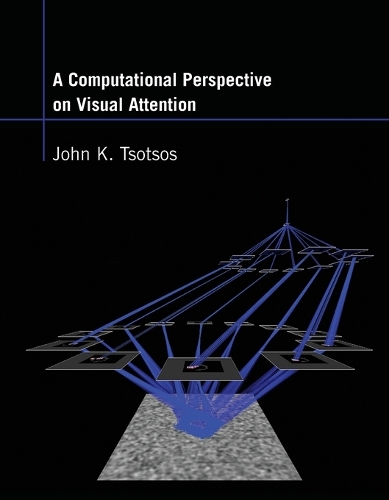
A Computational Perspective on Visual Attention
(Paperback)
Publishing Details
A Computational Perspective on Visual Attention
By (Author) John K. Tsotsos
MIT Press Ltd
MIT Press
22nd June 2021
United States
Classifications
General
Non Fiction
Neurosciences
Image processing
612.84
Physical Properties
Paperback
328
Width 178mm, Height 229mm
454g
Description
The derivation, exposition, and justification of the Selective Tuning model of vision and attention. Although William James declared in 1890, "Everyone knows what attention is," today there are many different and sometimes opposing views on the subject. This fragmented theoretical landscape may be because most of the theories and models of attention offer explanations in natural language or in a pictorial manner rather than providing a quantitative and unambiguous statement of the theory. They focus on the manifestations of attention instead of its rationale. In this book, John Tsotsos develops a formal model of visual attention with the goal of providing a theoretical explanation for why humans (and animals) must have the capacity to attend. He takes a unique approach to the theory, using the full breadth of the language of computation-rather than simply the language of mathematics-as the formal means of description. The result, the Selective Tuning model of vision and attention, explains attentive behavior in humans and provides a foundation for building computer systems that see with human-like characteristics. The overarching conclusion is that human vision is based on a general purpose processor that can be dynamically tuned to the task and the scene viewed on a moment-by-moment basis. Tsotsos offers a comprehensive, up-to-date overview of attention theories and models and a full description of the Selective Tuning model, confining the formal elements to two chapters and two appendixes. The text is accompanied by more than 100 illustrations in black and white and color; additional color illustrations and movies are available on the book's Web site.
Reviews
John Tsotsos manages to achieve the difficult task of striking a good balance between an extensive overview and greater depth given the interdisciplinary nature of the theme. This book is a must read for Ph.D students who are working in this area, as it explicitly states several open topics of research and even offers overt hints and methods to address them.
--Cognitive Systems ResearchThe algorithmic architecture of Tsotsos' updated selective tuning model will have immediate appeal for computational neuroscientists....
--Thilo Womelsdorf, Thilo Womelsdorf, Trends in Cognitive SciencesAuthor Bio
John K. Tsotsos is Professor of Computer Science and Engineering, Distinguished Research Professor of Vision Science, Canada Research Chair in Computational Vision at York University, and a Fellow of the Royal Society of Canada (FRSC).
